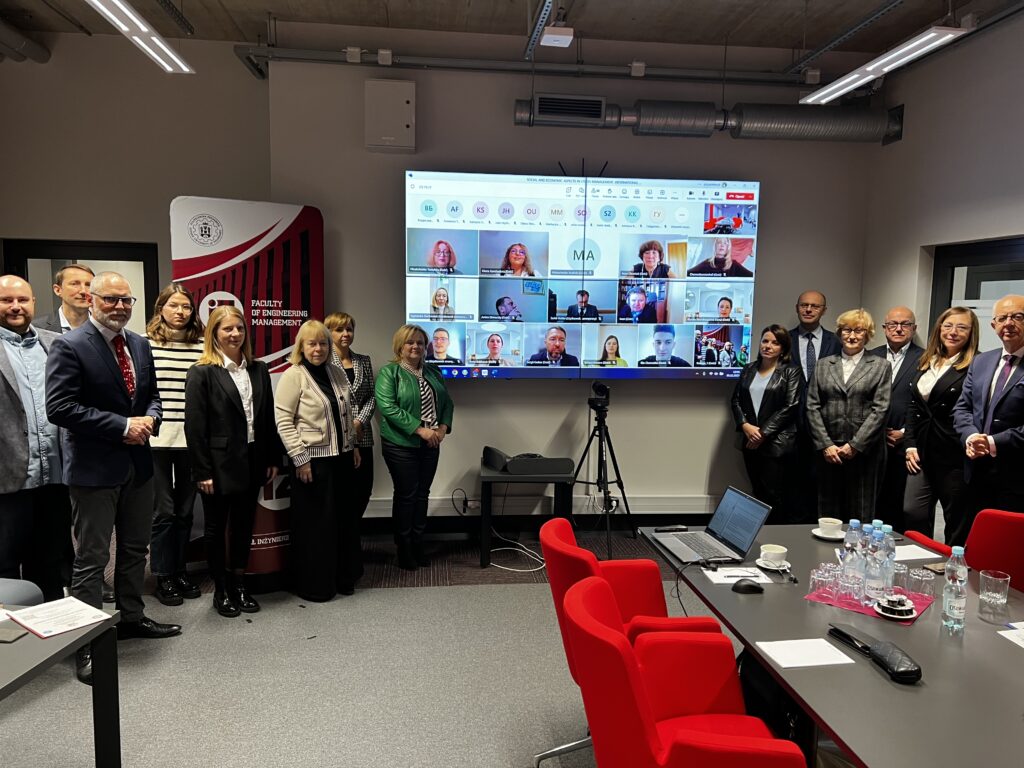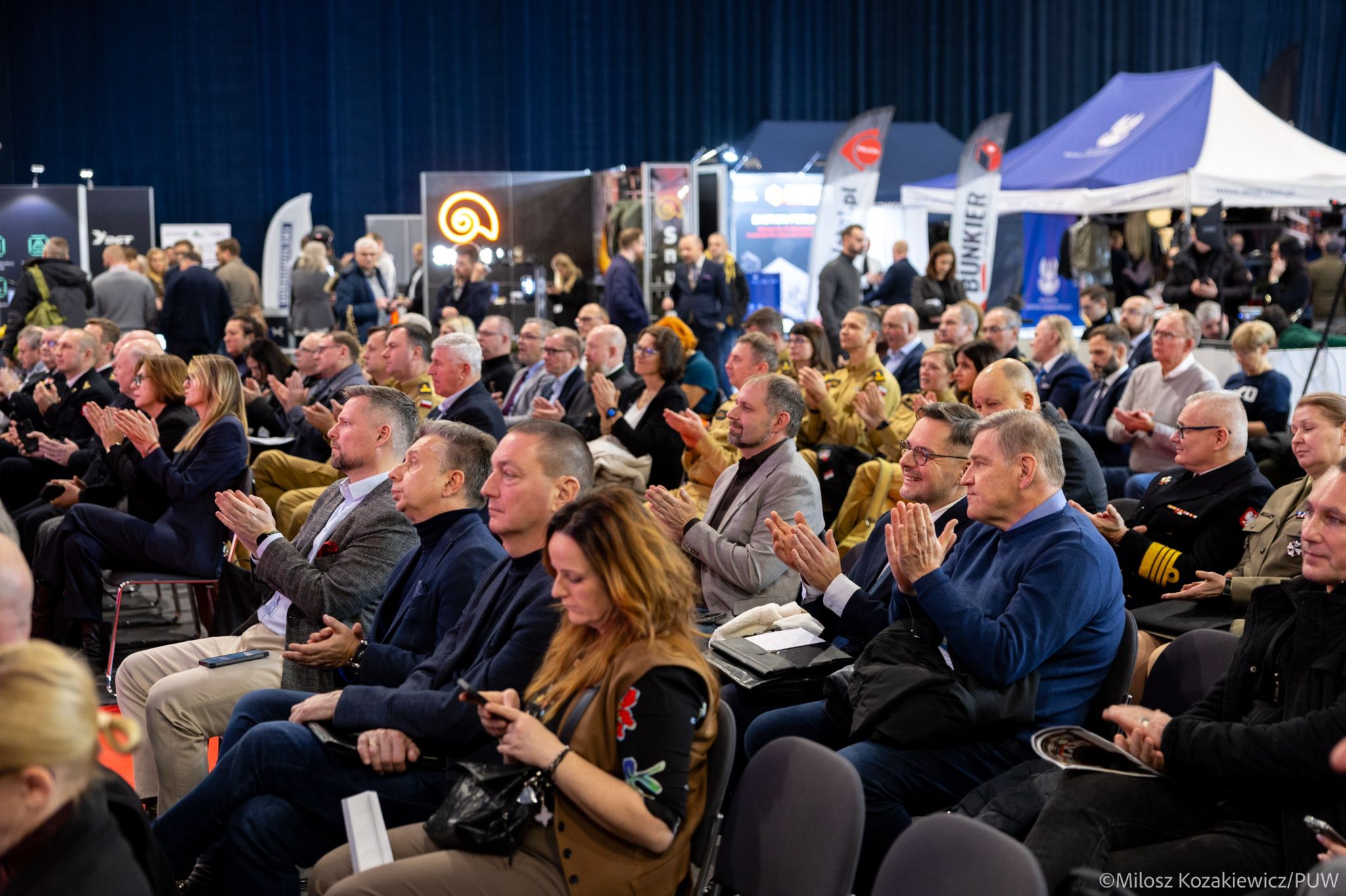
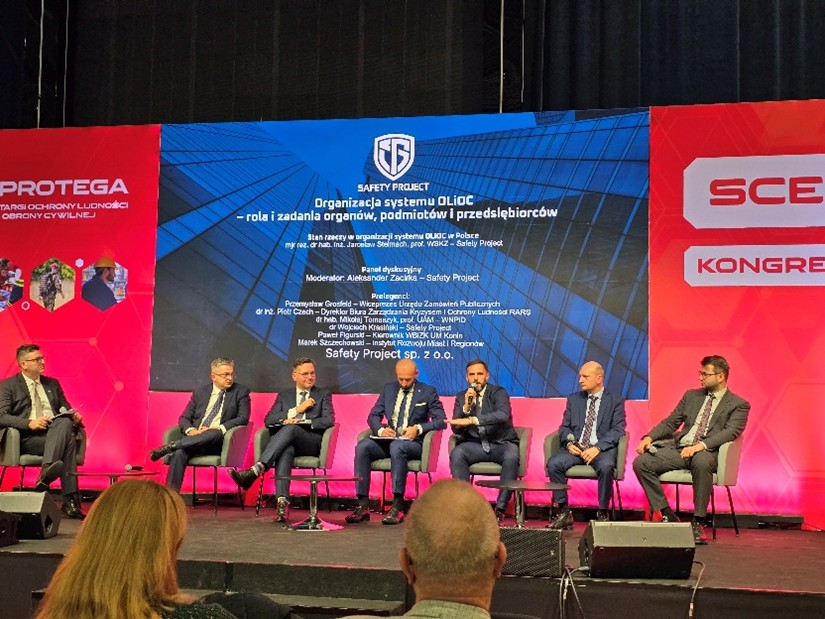
Participation of CECRS Project Team Members in the PROTEGA Fair
PROTEGA is a new specialized event dedicated to experts in civil protection, civil defense, crisis management, and rescue operations. Its main theme is the safety of the civilian population in the context of issues such as the consequences of climate change and natural disasters, chemical and ecological contamination, fire hazards, as well as structural and transportation disasters. The fair took place on 24–25 November 2025 at the Poznań International Fair. The event was attended by Dr. Oksana Erdeli-Klyap and Dr. Eng. Tomasz Ewertowski.
Paweł Kurosz – Member of the Program Council of the Protega Congress
Director of the Department of Security and Crisis Management at the Poznań District Office, a specialist in crisis management. Participant in the international research project “Community Empowerment: Crisis-Ready Solutions (CECRS)”, carried out under the NATO SPS programme by Poznań University of Technology and Kyiv Polytechnic.
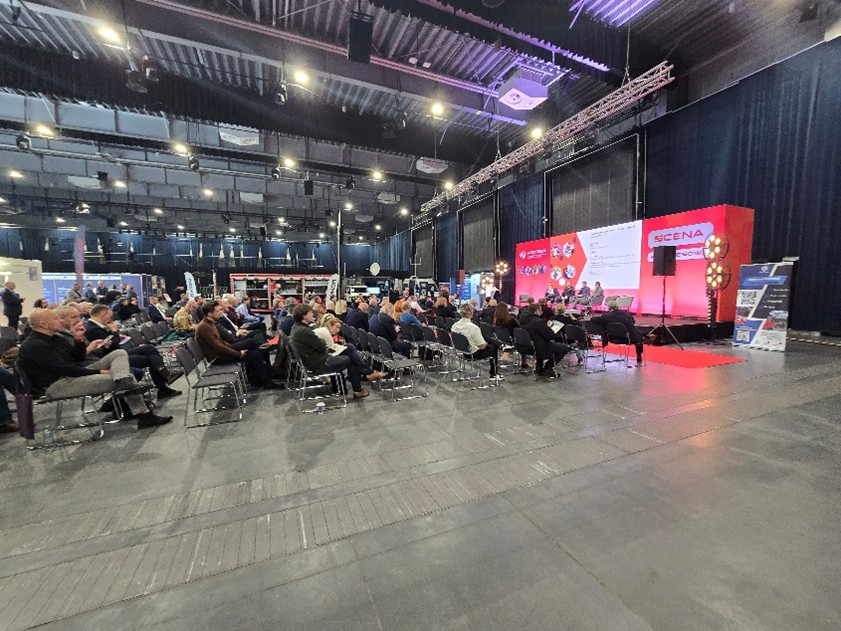
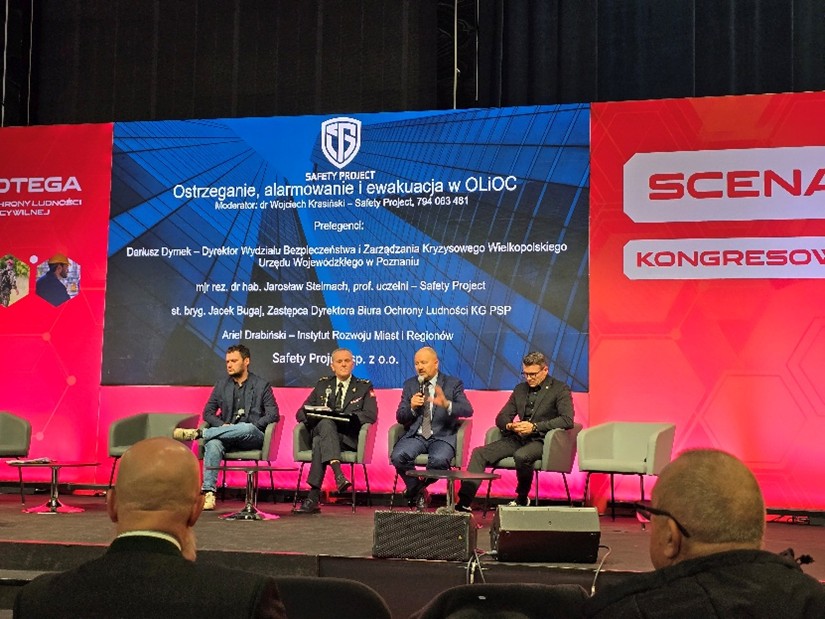
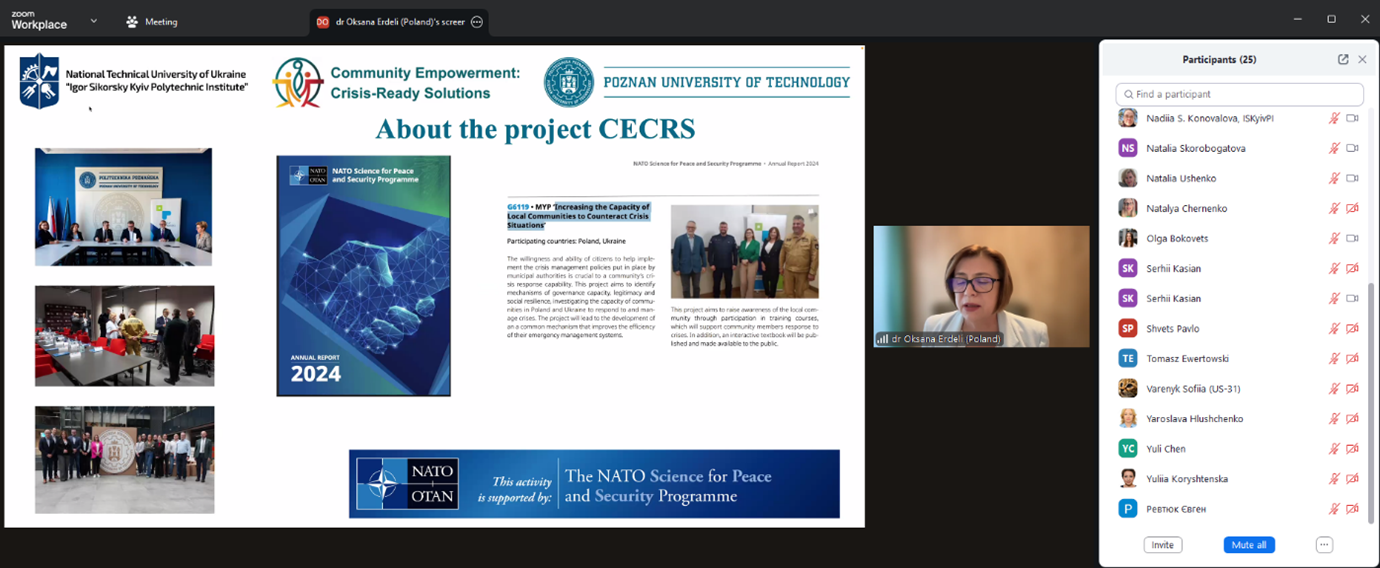
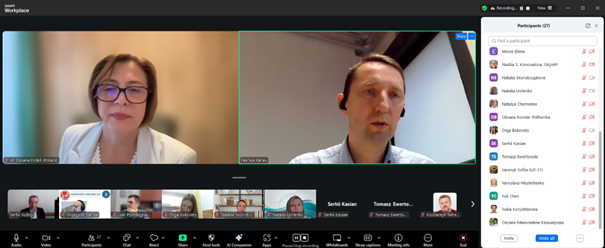
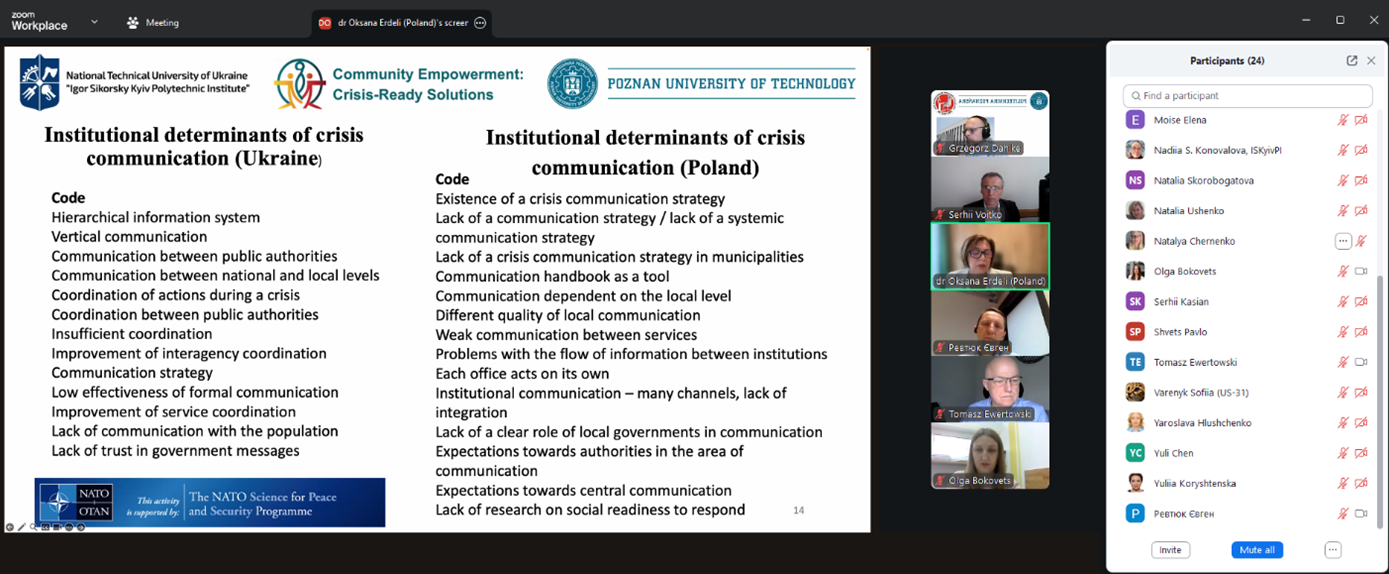
International Conference on Local Community Resilience – Polish-Ukrainian Cooperation for Security
On 18–19 November 2025, the International Scientific and Practical Conference “Resilient Communities – a Stable Future: Ukrainian-Polish Experiences in Crisis Response” was held online. The event brought together experts, researchers, and students from Poland and Ukraine to jointly discuss the key challenges related to the security and resilience of local communities.
The conference was organized by the Igor Sikorsky Kyiv Polytechnic Institute in cooperation with Poznań University of Technology, as part of the NATO Science for Peace and Security – CECRS project, aimed at strengthening the capacity of local communities to respond to crisis situations.
During the event, participants presented the results of the latest research on individual resilience, crisis communication, and the functioning of local communities in the face of contemporary threats.
On the first day of the conference, the following speakers gave presentations:
-
Oksana Erdeli – on the role of crisis communication in local communities,
-
Yevhen Revtiuk – on individual resilience and its importance in surviving crises.
The second day featured, among others:
-
Tomasz Ewertowski – presenting research findings on assessing the resilience of local communities,
-
Grzegorz Dahlke, Natalia Iwaniuk and Bartosz Piotrowski – presenting an analysis of barriers to crisis-related activity.
The conference created a space for inspiring exchange of experiences and for building lasting relationships between researchers and practitioners from both countries. The shared conclusions emphasized that social resilience is now one of the key pillars of security, and its development requires both research and international cooperation.
International Scientific and Practical Conference
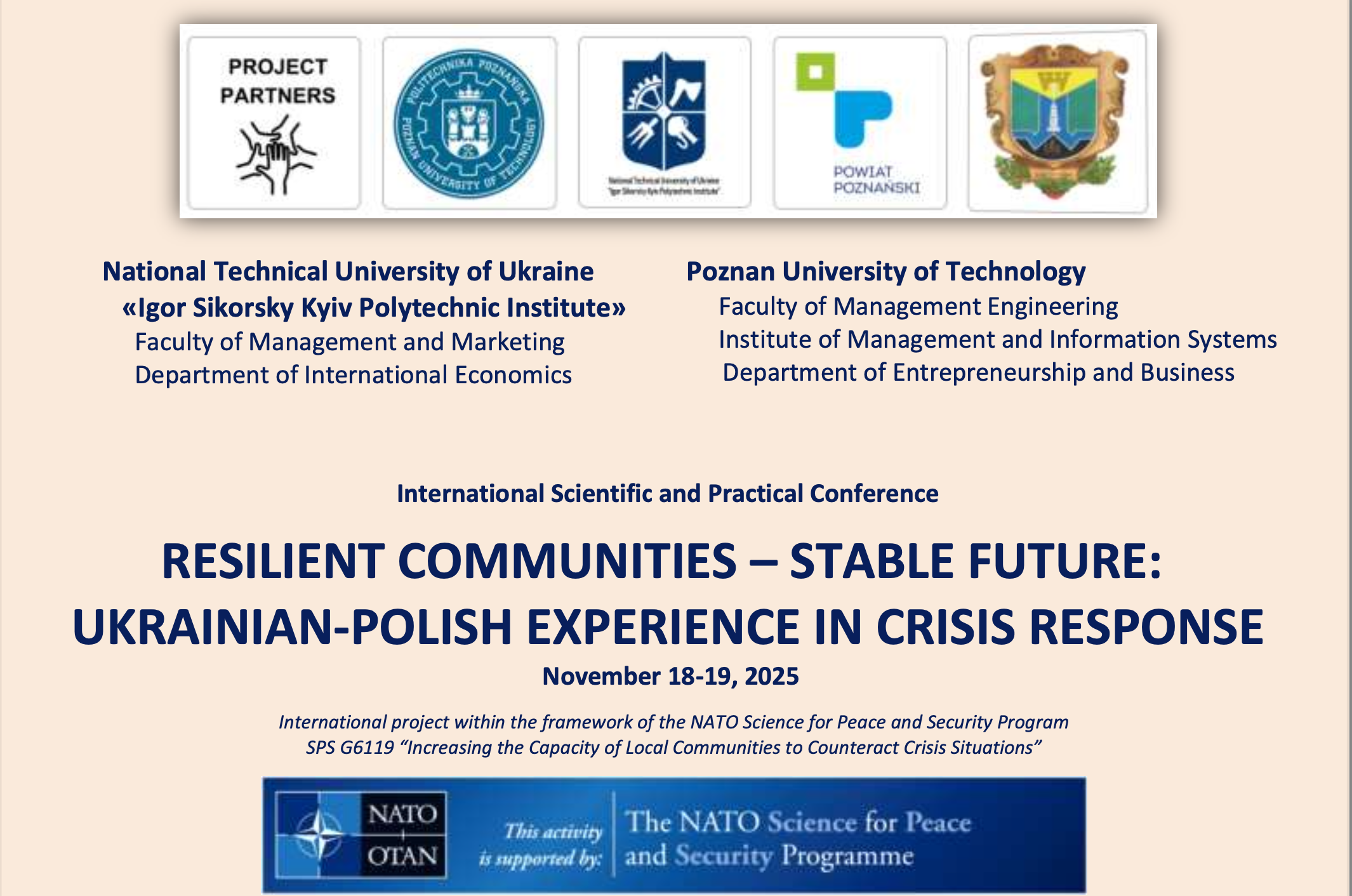
INCREASING THE CAPACITY OF LOCAL COMMUNITIES TO COUNTERACT CRISIS SITUATIONS
📅 Date: November 18-19, 2025 📍 Conference Format: Online via Zoom platform
On November 18-19, 2025, an international scientific and practical conference will take place under the title:
"RESILIENT COMMUNITIES – STABLE FUTURE: UKRAINIAN-POLISH EXPERIENCE IN CRISIS RESPONSE"
The event is organized as part of the international NATO SPS project entitled: "Enhancing Local Community Capacities to Counteract Crisis Situations.
THEMATIC AREAS OF THE CONFERENCE:
- UKRAINIAN REALITIES OF SOCIETY’S CAPACITY TO RESIST CRISIS SITUATIONS
- MODEL OF RESILIENCE: HOW POLISH MUNICIPALITIES ADAPT TO NEW CHALLENGES
- GOOD GOVERNANCE AND DIGITAL RESILIENCE OF COMMUNITIES
- DATA SCIENCE FOR COUNTERING THREATS TO COMMUNITY DEVELOPMENT
The goal of the meeting is to discuss contemporary challenges and methodological approaches to sustainable community
development in crisis situations, incorporating international best practices and experiences.
Complete the conference participant:
Click here
Conference materials should be sent to: ied@kpi.ua (file name format: Section Number_Surname_abstract, for example: 1_Paniv_abstract).
Conference proceedings will be published electronically on Igor Sikorsky Kyiv Polytechnic Institute resources.
For the conference presentation (up to 15 minutes), we recommend preparing presentation materials (10–20 slides in MS PowerPoint)
International Round Table
at the Poznań University of Technology
and the Kyiv University of Technology
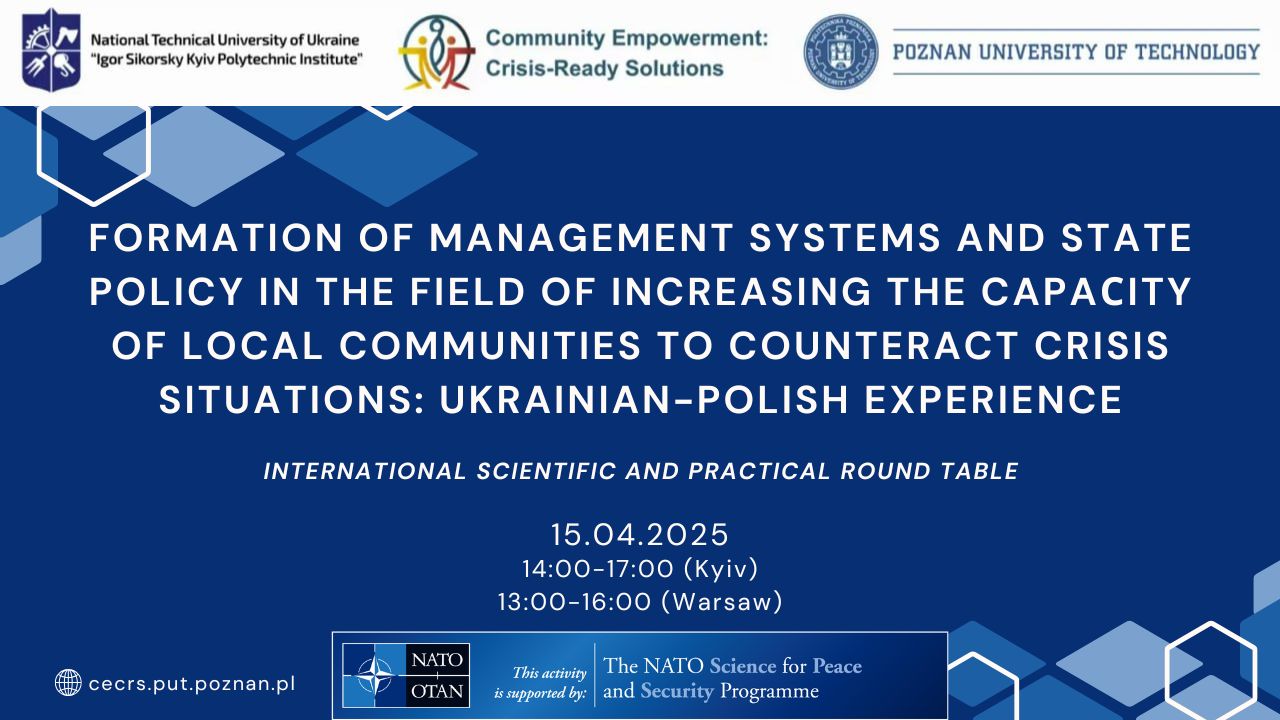
INCREASING THE CAPACITY OF LOCAL COMMUNITIES TO COUNTERACT CRISIS SITUATIONS
📅 Date: April 15, 2025 📍 Location: Poznań University of Technology and Igor Sikorsky Kyiv Polytechnic Institute, National Technical University of Ukraine
On April 15, 2025, an international round table discussion will take place under the title:
"FORMATION OF MANAGEMENT SYSTEMS AND STATE POLICY IN THE FIELD OF INCREASING THE CAPAСITY OF LOCAL COMMUNITIES TO COUNTERACT CRISIS SITUATIONS: UKRAINIAN - POLISH EXPERIENCE"
The event is organized as part of the international NATO SPS project entitled: "Enhancing Local Community Capacities to Counteract Crisis Situations."
The co-organizers of the event are:
🔹 Faculty of Management and Marketing, Igor Sikorsky Kyiv Polytechnic Institute, National Technical University of Ukraine
🔹 Faculty of Engineering Management, Poznań University of Technology
🔹 Poznań County
🔹 Bucha District, Ukraine
The goal of the meeting is to exchange experiences and best practices related to strengthening the resilience of local communities in crisis situations in the context of contemporary security challenges.
Participants will include representatives from academia, local government administration, and non-governmental organizations from Poland and Ukraine.
Program
SEMINAR
"Social and Economic Aspects in Crisis Management: International Experience"
On December 5, 2023, a Polish-Ukrainian scientific seminar was held, bringing together 36 experts from Poland and Ukraine to discuss key social and economic aspects of crisis management.
The seminar featured presentations by academics and local government representatives on three main topics:
- Behavioral aspects of crisis management in local communities
- Crisis management at the local level: practical aspects
- Building the entrepreneurial potential of local communities in a post-war context
These presentations were accompanied by expert debates and discussions.
During an intensive exchange of experiences, participants focused on significant issues related to the discussed problem. In the context of social behaviors and economic issues, several key issues were identified, including:
- The level of public trust in authorities, both local and central,
- The need for coordination of strictly crisis actions and those related to social responses (individual or group behaviors),
- Creating flexibility and the ability to adapt local communities to changing conditions during emergencies or crises,
- Mandatory updating and communication of guidelines or standards for responding to crisis situations,
- Monitoring the environment to identify threats and prevent problems,
- Periodic analysis of the sensitivity of areas susceptible to disruptions in the context of their resilience to crisis,
- The importance of current information and education, as well as improving legal systems,
- Proactive planning of local community preparations for potential crisis situations.
Particular emphasis was placed on the situation in Ukraine in the context of the war aggression by Russia, where a multifaceted approach to the country's current reconstruction proved crucial.
The conclusions from the seminar indicate the complex nature of crisis management. It was emphasized that flexibility in cooperation between authorities and the community, building trust, and continuous improvement of informational and training processes in dealing with disruptions are key to increasing community resilience to dynamic challenges.
As part of initiatives aimed at counteracting crisis situations in social and economic areas, a project titled "Strengthening the Potential of Local Communities to Counteract Crisis Situations" for the years 2024-2026 was submitted. An international team of scientists will conduct research, trying to address the complex challenges presented during the seminar.
The seminar also marked an important step towards building international cooperation and identifying effective social strategies in crisis management and building communities resilient to the changing conditions and challenges of the modern world.
On behalf of the organizers of the Polish-Ukrainian scientific seminar,
Dr. Oksana Erdeli and Prof. Serhii Voitko









